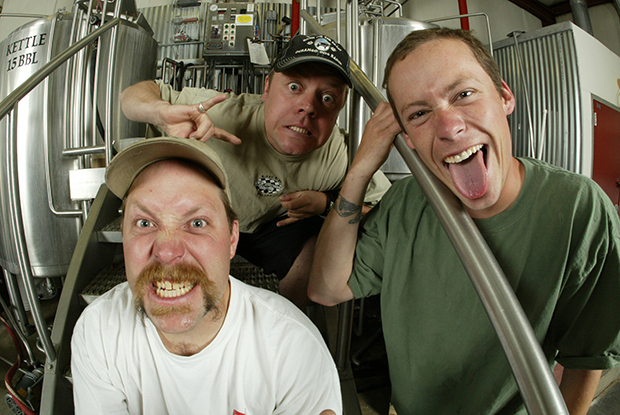
On March 9, 2020, Ska Brewing sent out a press release announcing the opening of a new venture: Ska Street Brewstillery — a joint project between the Durango, Colorado brewery and its sister company Palisade’s Peach Street Distillers — set to open in Boulder March 16.
The day came, Ska Street opened its doors at 5 p.m., and one hour and eleven minutes later, it closed its doors to the public following a statewide mandate to shut down restaurants and bars. 69 of its 70 employees had to be laid off one day after they started.
Ska hasn’t been without its struggles since the COVID-19 pandemic, but getting creative has been what ensured the 25-year-old brewery’s survival.
Co-founders Dave Thibodeau and Bill Graham met in seventh grade and have stayed best friends ever since. Despite technically being in different cities (Thibodeau in Wheatridge and Graham in Golden, Colorado) they lived just a couple of blocks from one another. The two grew up in the shadow of Coors Brewing Company where they could actually smell the beer brewing.
“So beer was a big part of our lives probably before it should have been,” Thibodeau said with a laugh. He remembers a day in the mid-80s when he and Graham were still in high school to be a turning point. “One day we were in my parents’ living room and we saw a book on the bookshelves that said ‘brew book.’ We took the book off the shelves and it turned out it was my dad’s home brewing log sheets.”
That was like a lightbulb and influencer from the two to home brew themselves in high school. They continued to home brew through college until they ended up in Durango — Thibodeau for a job at the local ski area, Purgatory, and Graham as a switcher at a local television station.
But craft beer was their real passion, and the pair finally opened Ska Brewing out of a small corner of a warehouse in 1995.
“The cool thing was, we didn’t know how long we would have before we were actually making any money, if ever,” Thibodeau said. “There wasn’t any trajectory of anybody else to follow. Now if you wanted to go and open up a brewery, you might have an idea of how things would go for a year or two. We didn’t have a clue.”
The reason Thibodeau said they chose that warehouse was because it had a shower — up until that point Thibodeau was living out of his car.
“It wasn’t a good spot. It wasn’t going to be a brewpub. We didn’t have the money to do that. We didn’t know anything about food. We couldn’t afford any packaging equipment,” he said. “It really didn’t even exist on a small scale yet. New Belgium wasn’t even bottling beer yet when we opened up.”
Their first sale from Ska was just two kegs on September 12, 1995 at the Telluride Blues & Brews Festival (previously called the Telluride Brewers Festival).
“We had no money so we had to do everything we could do with the least amount of money,” Thibodeau said. “We kept our full-time jobs as we built it, and then through our whole first year of business, we didn’t pay ourselves a penny.”
Thibodeau and Graham would get off work around 5 p.m., go to the brewery and work until 3 or 4 a.m. then sleep just a couple of hours before going back to their day jobs.
They brought Matt Vincent on as a partner, another guy they met at a homebrew party a couple of years prior, who worked as an assistant brewer at Durango Brewing. Vincent buying in as a partner helped Ska Brewing get through its first shoulder — or ‘off’ — season in Durango.
The name Ska Brewing could first be seen on the homebrew bottles with labels designed on Graham’s Macbook, a name inspired by the Jamacian music genre that was a precursor to Reggae. Ska’s iconic black and white checkerboard design is a nod to 2 Tone Records, an English record label that released Ska and Reggae-influenced music. Ska’s logo used checkers to represent a unity among the races. The comic-book styling was simply a result of their love of comic books.
In the early days, Thibodeau, Vincent and Graham did everything themselves. They all brewed, helped with marketing, delivered, sold and packaged.
“Eventually we were able to hire enough people that were better than us at various things, which was a huge turning point because all three of us had our shortcomings,” Thibodeau said. “And we got to the point where, to be a better business and a better brewery, we needed brewers that were better than us and packaging people who maybe understood things better than us and human resources and stuff like that.”
That’s when Vincent took over the financial side and Graham turned more to brewing while Thibodeau leaned into marketing and sales. 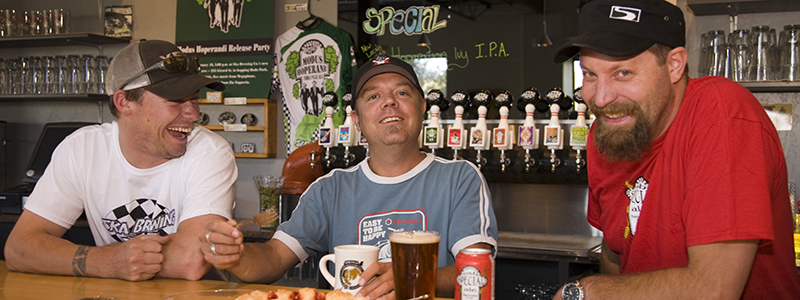
Ska Brewing first started packaging in bottles and sold beers in six packs, and then moved to canning in 2003.
Ska Brewing was a pioneer in the US in canning, as the second craft brewery in the country — behind Oskar Blues — to can its beer, and they eventually hired delivery drivers and salespeople to help with distributing. Through the years Ska has slowly moved away from its first packaging format of bottles to cans, eventually just getting rid of their bottles altogether. When they originally started canning, it was to have a more outdoor adventure-friendly package, because bottles don’t travel well.
“We went from bombers in the late nineties to 12 oz bottles in the early 2000s, then the cans,” Thibodeau said. “And so, we’ve always had a new kind of platform. And our website and social media didn’t exist when we started really either.”
In 2008, Ska moved into its current building, which was around the time they started to build a marketing team. Last year, the brewery had its first label refresh. Prior to the addition of their marketing director, Kristen Muraro, Thibodeau and the team didn’t really think about consistency or branding. When they released new beers, they were just trying to continue the comic-book story of themselves as the self-proclaimed ‘heroes’ versus the ‘villains’ — The Rotgutzen International Beverage Corporation (aka macro breweries).
“It’s not like we had big marketing meetings and talked about branding and had any focus groups. We would just keep going with the story and the characters and the beer,” Thibodeau said.
As Ska continued to grow, so did its canning line, which didn’t come without its problems. After struggling with a bigger canning line for a few years, Vincent wanted to figure out a better way to push cans off the pallet onto the conveyor that led to the filler. An operator had to use a broomstick and a forklift to push cans from the pallet to the conveyor.
“Cans were still falling all over the place and it still required a person to stand on a ladder and push cans as the machine needed them,” Vincent said, adding that there was excessive loss. “It was a very inefficient process that wasted one person’s time while standing on a ladder, which is still generally unsafe.”
So Vincent invented a can depalletizer for Ska to reduce the need for an operator on the line and allow that person to focus on the filling and seaming process.
Other breweries that were just getting into canning would tour Ska and check out the canning line. When they saw the depalletizer, they started asking Vincent to build them one.
“Matt was still day-to-day here at the brewery with me and Bill at the time,” Thibodeau said. “One day he just looked at us and he was like, ‘Would you guys care if I started another company and called it Ska Fabricating and started making depalletizers for other breweries?’ We were like, ‘No, have at it.’ So that’s kind of how it started.
“I think the first brewery I remember walking in and asking if we could build one for them was Austin Beer Works, so they ended up with the second depalletizer Matt ever made.”
Vincent bought the old warehouse that Ska Brewing began in and founded Ska Fabricating in 2012.
Vincent wasn’t the only one to leave Ska Brewing for another venture. Ska Brewing’s sister company Peach Street Distillers was founded in Palisade, Colorado in 2005. It was run by Rory Donovan for about 10 years until Graham left Durango and moved up to help out.
This year started off well for Ska Brewing. “Our projections [pre-COVID] were pretty much spot on,” Thibodeau said. “We were planning to grow about 5% this year. When COVID hit, overnight we lost about 40% of our revenue just because of restaurants and bars closing.”
Ska’s latest venture, Ska Street Brewstillery, a partnership with Peach Street Distillery, was conceptualized last year and came to fruition in March, 2020.
On opening day at Ska Street, the TVs were playing Governor Jared Polis’ press conference when he ordered the shutdown of restaurants and bars.
“We bought everyone a shot and then closed,” Thibodeau said. “We could have tried to do takeout at Ska Street in Boulder but nobody in the neighborhood even knew us yet, so they didn’t even know what kind of food we had. [Attempting to stay open] seemed like a really bad move for us, so we just shut it down.”
Thibodeau said Ska Street is just breaking even right now being open at 50% capacity, and “if anything goes wrong or we have any kind of debt right now… we’re in scary territory right now because of COVID.”
The reason they made so many layoffs early, Thibodeau said (40-45 out of 70 from Ska, 69 of 70 from Ska Street, and around 70% of the staff from Peach Street) was because he would rather lay people off early and be able to hire them back down the road rather than going under from stretching the business too thin financially.
Now, Ska is actively hiring again, and they’re on track to do about the same in terms of barrelage as they did last year, as long as they are able to get enough cans to keep up with demand. While manufacturing limitations are preventing breweries from getting their hands on the cans they need, Ska is using a unique approach to deal with the shortage. Whether it’s a skipped seasonal, an old label from before the label refresh, or cans Ska bought from another brewery, Ska has been rewrapping its already labeled cans and selling them. That way they aren’t having to recycle unused cans. As of early October Thibodeau said about 458,000 cans had been relabeled so far.
The relabled cans have been a hit with customers, and now people are actively looking for the rewrapped cans in grocery stores, treating it like a treasure hunt. Ska still has more cans to go through, but Thibodeau expressed his worries that if the stored cans run out, the production side of Ska is going to be in trouble, with cans currently making up a greater majority of the brewery’s output.

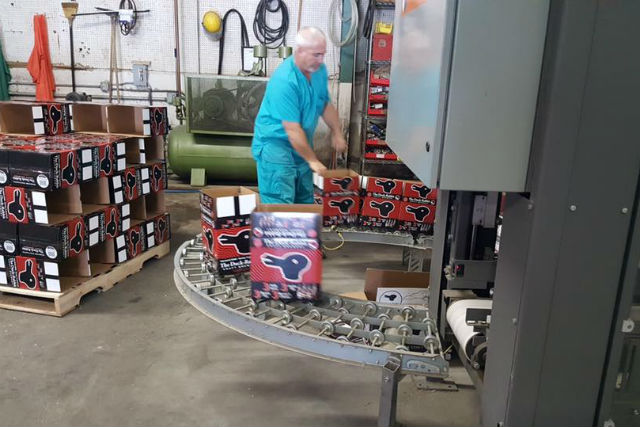
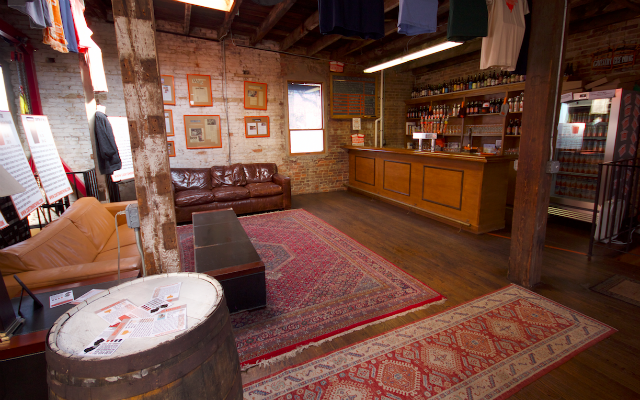
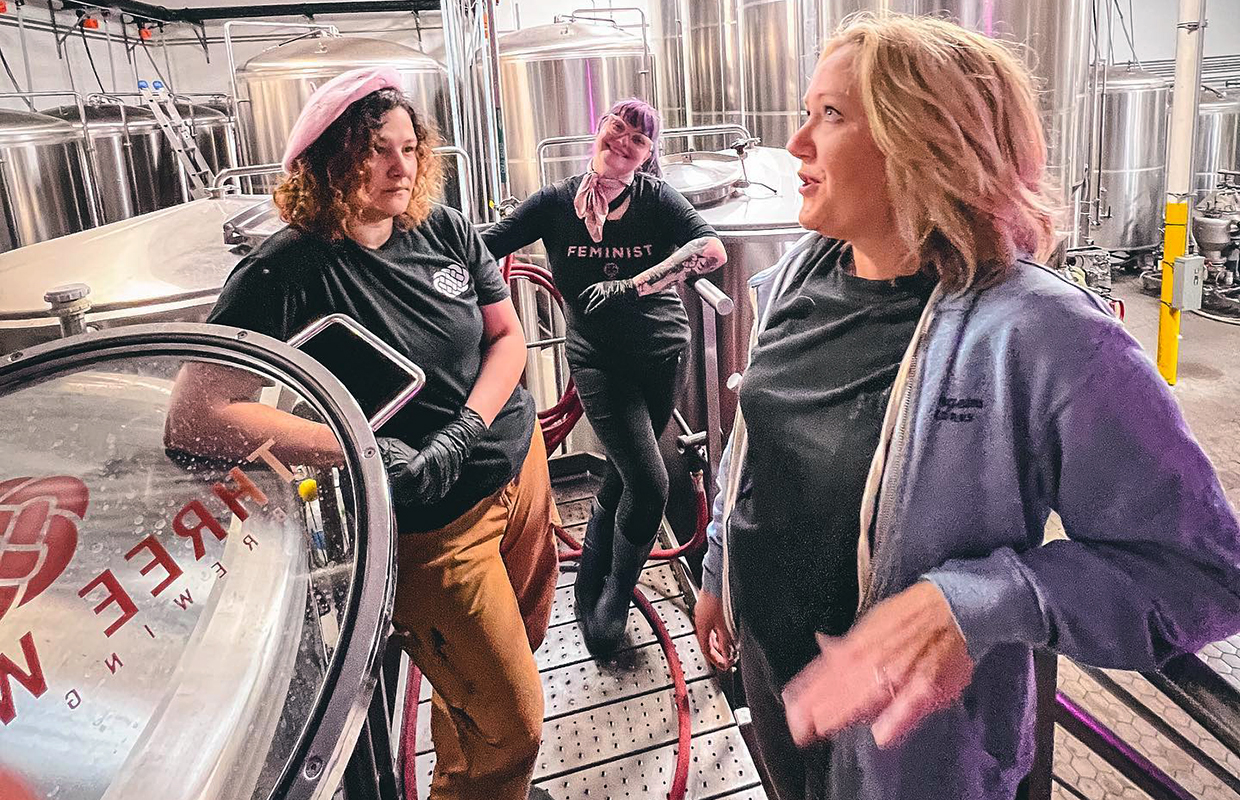
Be the first to comment